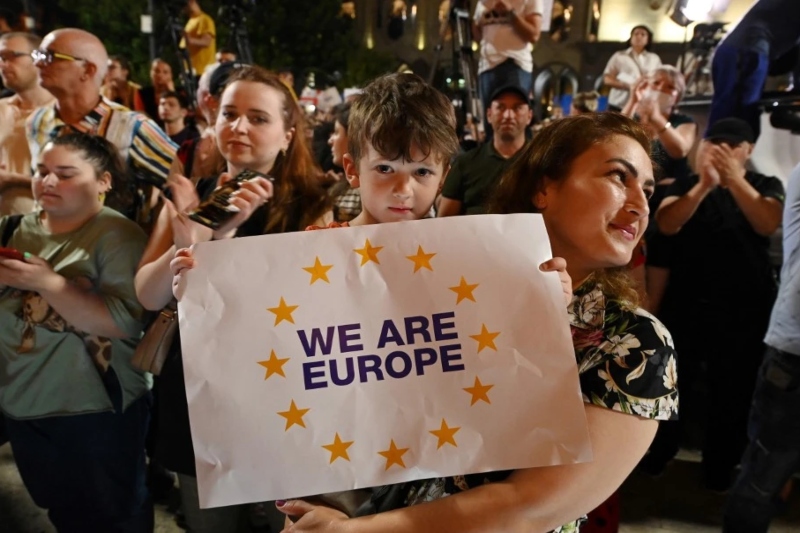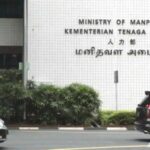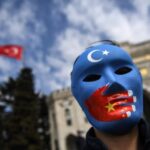
thousands of people gather in tbilisi to demonstrate georgia’s commitment to eu membership
 Europe – The March for Europe protest, organized by the country’s largest pro-democracy groups, drew demonstrators flying Georgian, Ukrainian, and EU flags outside the parliament building.
Europe – The March for Europe protest, organized by the country’s largest pro-democracy groups, drew demonstrators flying Georgian, Ukrainian, and EU flags outside the parliament building.
As the EU song, Ode to Joy, played, several people held posters that said we are Europe surrounded by a circle of yellow stars. Participants marched to Europe Square, where they signed Georgian and EU flags and left inscriptions on the square.
According to AFP, the crowd size was estimated to be 120,000 people based on video footage captured by drone cameras. The rally’s organizers stated that they wished to “show the Georgian people’s loyalty to their European choice and Western ideals.”
Demonstrators waved Georgian, Ukrainian, and EU flags outside the parliament building during the March for Europe rally, which was organized by the country’s major pro-democracy parties.
Several people hoisted banners that proclaimed We Are Europe surrounded by a circle of yellow stars as the EU hymn Ode to Joy played. Participants marched to Europe Square, where they signed Georgian and European Union flags and wrote inscriptions.
According to AFP, based on video footage acquired by drone cameras, the crowd size was estimated to be 120,000 people. The organizers of the demonstration declared that their goal was to “demonstrate the Georgian people’s allegiance to their European choice and Western ideals.”
According to the manifesto, the country’s primary roadblock to European integration is Bidzina Ivanishvili, the wealthy founder of the ruling Georgian Dream party who, despite not holding government, is largely regarded as the country’s top decision-maker.
Related Posts
The European Parliament voted a nonbinding resolution earlier this month calling on the EU to censure Ivanishvili for his “destructive influence” in Georgia’s politics and economy. Ivanishvili claims to have stepped down from politics.
The Georgian Dream party expressed “regret” on June 17 that the country, along with Ukraine and Moldova, had not been approved for EU candidate status.
Ending political polarization, progress on media freedom, judiciary and electoral reforms, and “de-oligarchization,” according to the European Commission, are among the objectives Tbilisi must meet.
The Commission, on the other hand, urged that Tbilisi be given “the European viewpoint,” a move that Prime Minister Irakli Garibashvili praised as “historic.” He promised to collaborate with Brussels to “achieve all conditions and obtain candidate status.”
Shortly after the Russian invasion began on February 24, Ukraine submitted its application for EU membership. Moldova and Georgia followed suit almost immediately.
At a conference later this week, the 27 EU member states will debate the three governments’ petitions.
Russia has long been enraged by Georgia’s desire to strengthen ties with the West. Tensions reached a climax with Russia’s invasion of Georgia in 2008, after which Russia recognized South Ossetia and another province, Abkhazia, as separate entities and stationed thousands of its troops there.
Since the 2020 parliamentary elections, Georgia has been beset by political stagnation and growing tensions between the Georgian Dream party and the opposition. Last year’s incarceration of former President Mikheil Saakashvili, the founder of the main opposition United National Movement party, aggravated the crisis.


















